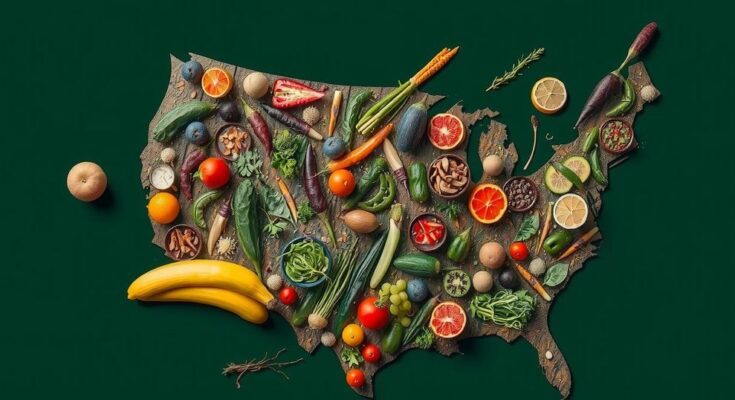Robert F. Kennedy Jr. promises to remove processed foods from school lunches if part of a second Trump administration, signaling a possible shift in food policy after the previous administration’s loosening of nutritional standards. His proposals, while supported by some, raise concerns among health officials and industry lobbyists about potential impacts on public health and food prices.
In a bold declaration, Robert F. Kennedy Jr. announced a commitment to eliminate processed foods from school lunches if appointed in a second Trump administration. This stance took many by surprise, particularly in light of his predecessors’ efforts to maintain stringent school lunch regulations. The Trump administration, under Sonny Perdue, had aimed to dismantle initiatives set by Michelle Obama that sought to enhance the nutritional quality of meals served in schools. Kennedy’s proposed food policies represent a shift in direction for an administration traditionally aligned with the food industry. His ambitions, such as banning ultra-processed foods and banning food dyes, have gained traction among some conservatives and progressives alike, igniting fears among health officials and nutritionists regarding his intentions to revamp health agencies. Critics question the credibility of his claims, particularly regarding his history with anti-vaccine propaganda. While Kennedy blames Democrats for neglecting public health, he claims that both healthy eating and clean governance should transcend partisan lines. He categorizes the food industry’s practices as “mass poisoning” and challenges the status quo, proposing that basic necessities should not be influenced by political affiliations. Recent plans for a new round of dietary guidelines in 2025 could provide a platform for Kennedy to implement his changes. Implementing such reforms is no small feat. Nutrition experts express concerns about how Kennedy’s proposed policies may affect food prices and the overall system of food regulation, ideally demanding that any regulatory changes be grounded in scientific evidence rather than personal claims. There’s a palpable tension in the air; food lobbyists are wary, calling for a science-based approach to any potential revisions in food policy. Trump’s commitment to support Kennedy comes as they join forces on the “Make America Healthy Again” initiative, a revealing contradiction considering Trump’s fondness for fast food, which Kennedy vehemently critiques. Nonetheless, Kennedy has garnered some support among activists seeking to challenge the food industry’s influence on nutritional guidelines, advocating for transparency in food research. Tackling ultra-processed foods, however, evokes a complex landscape where the FDA acknowledges the risks associated while the exact ramifications of processed foods on health are still being investigated. Former food safety and nutrition officials have voiced concerns that Kennedy’s proposed staffing changes could jeopardize the federal effort against unhealthy food practices, amplifying voices dissatisfied with current labeling regulations. Ultimately, while Kennedy’s campaigns suggest a shift towards healthier food policies, the practical implications of his approach leave many experts apprehensive about potential backlash from food companies and the science community. Critics are left to ponder: will Kennedy’s proposed revolution in food policy lead to a healthier America or ignite further controversy?
The article revolves around Robert F. Kennedy Jr.’s pledge to eliminate processed foods from school lunches and reshape the food policies if he gains a role in a second Trump administration. This follows a historical context where the previous administration actively reversed healthier food initiatives established during Michelle Obama’s term. The piece explores the implications of Kennedy’s proposed changes on public health, regulatory norms, and the food industry, amidst a backdrop of political and scientific debate.
Kennedy’s commitment to reform the nation’s food policies, particularly concerning school lunches and processed foods, marks a significant potential shift for a Republican administration. While some ideas resonate across the political spectrum, apprehensions about his controversial past and the practicality of implementing these reforms linger. As the discussion unfolds, the intersection of health policy and politics continues to spark intense debate about the future of food regulation in America.
Original Source: www.detroitnews.com



